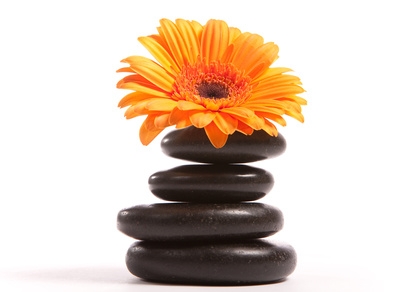Six Ways Ayurvedic Medicine Can Change Your Life
By PF Louis | Май 11, 2013

China has their ancient medicine, Traditional Chinese Medicine (TCM), and India has its ancient medical version called Ayurveda. Both go back 5,000 years or more. This article focuses on Ayurveda.
Good Ayurveda practitioners can determine potential health problems before modern allopathic expensive instruments can, and then do what’s necessary to prevent them safely without expensive instruments.
They do this by examining skin tone and color, eyes, and the tongue, using a sophisticated awareness of the tongue’s subtle characteristics that indicate different health issues.
They also determine different aspects and nuances of your pulse by hand, not just pulse rate and strength. Then they ask questions about your lifestyle including diet, exercise, and mental and emotional issues.
All of this determines your doshas and their probable imbalance. A dosha is a unique body/mind principle or dynamic. There are three basic doshas and each is subdivided into five categories.
The doshas are vata (wind), pita (heat or fire), and kapha (earth and water). Each dosha contains one or two of Ayurveda’s five elements: Air, space, fire, earth, and water.
Although we contain all three doshas, one or more is usually predominant and it determines our metabolic type and essential constitutional nature, or prakuti. Then a dietary list is prescribed with herbs as required.
If those doshas are a train wreck, then panchakarma, Ayurveda’s lengthy total cleansing regimen under close supervision, is recommended.
Some people who underwent panchakarma in Albuquerque, NM, which seems to have the highest per capita concentration of Ayurveda clinics in the USA, experienced radical health improvements, and one even claimed it saved her life.
Essentially, Ayurveda is aligned with natural laws and dynamics without arrogantly trying to one-up nature.
Six ways Ayurveda improves your health:
(1) Herbs: A variety of herbs is contained in an Ayurveda clinic’s private pharmacy. They are dispensed from their own bulk stocks, and they target one’s health issues specifically.
Triphala powder, for digestion and elimination, is the most generally prescribed herbal for westerners who have indulged in the standard American diet.
Ayurveda considers good digestion the key to good health, while poor digestion creates disease.
(2) Overall diet: A complete list of foods that often doesn’t require or exclude meats is given to the client according to his or her dosha distribution or prakuti for optimum metabolism. The largest meal should be as close to peak sunshine as possible, and breakfasts should be small.
Peaking sunshine corresponds to the digestive tract’s optimum fire, or agni for digestion. Ayurveda teaches that drinking cold beverages during mealtime diminishes one’s agni. Ayurveda eliminates soy products unless they’re fermented and recommends eating fruits separately from other foods.
Learn more: здесь















